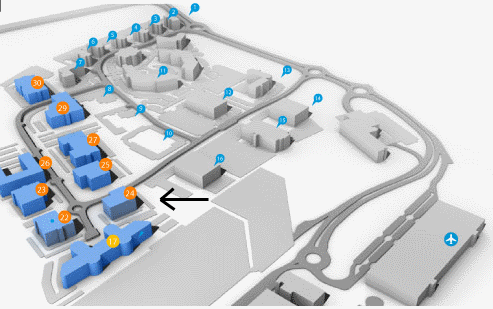Current Size: 100%

- Publications
- Cancer atlases
- 9.3 Risk factors
NCR books
- Cancer Atlas
- Acknowledgements
- Foreword
- Summary
- 1. Introduction
- 2. Methods
- 3. Non-melanoma skin cancer
- 4. Breast cancer
- 5. Colorectal cancer
- 6. Lung cancer
- 7. Prostate cancer
- 8. Non-Hodgkin's lymphoma
- 9. Stomach cancer
- 10. Melanoma of the skin
- 11. Bladder cancer
- 12. Head and neck cancer
- 13. Leukaemia
- 14. Pancreatic cancer
- 15. Kidney cancer
- 16. Oesophageal cancer
- 17. Ovarian cancer
- 18. Brain and other central nervous system cancer
- 19. Cancer of the corpus uteri
- 20. Cancer of cervix uteri
- 21. Discussion
- 22. Conclusions and recommendations
- Appendix 1: Relative risks (with 95% confidence intervals) by area characteristic, cancer site and sex
- Appendix 2: Electoral division tables
- Appendix 3: Summary statistics for each cancer site
- Appendix 4: Regions referred to in the atlas
- References
- Index of figures, maps and tables
9.3 Risk factors
Error message
Warning: mkdir(): Permission denied in boost_mkdir() (line 1407 of sites/all/modules/boost/boost.module).Table 9.2 Risk factors for stomach cancer, by direction of association and strength of evidence
Increases risk | Decreases risk | |
Convincing or probable | Helicobacter pylori infection1 | Non-starchy and fresh vegetables4,8,10 |
| Epstein-Barr virus2 | Fruit4,10 |
| Tobacco smoking3 | Refrigeration4 |
| Salt, salted and salty foods, or salt preserved foods, including Chinese-style salted fish3,4 | Aspirin and other non-steroidal anti-inflammatory drugs11,12 |
| Ionizing radiation5 | |
| Low socio-economic status6 | |
Possible | Fermented soya foods7 | Non-fermented soya foods7 |
Pickled vegetables8 | ||
Overweight/obesity9 | ||
1 Helicobacter and Cancer Collaborative Group, 2001; 2 International Agency for Research on Cancer, 2011b; 3 Secretan et al., 2009; 4 World Cancer Research Fund / American Institute for Cancer Research, 2007; 5 El Ghissassi et al., 2009; 6 Faggiano et al., 1997; 7 Kim et al., 2011; 8 Kim et al., 2010; 9 Yang et al., 2009; 10 International Agency for Research on Cancer, 2003; 11 Tian et al., 2010; 12 Yang et al., 2010 | ||
Infection with the common bacterium, Helicobacter pylori (H pylori), which lives in the stomach and causes inflammation and ulcers, is associated with a six-fold raised risk of stomach cancer (Table 9.2). Meta-analysis of intervention studies shows that stomach cancer risk is decreased by one-third in H pylori-positive patients randomised to eradication treatment (Fuccio et al., 2009). It has been suggested that H pylori infection may be a necessary (but not sufficient) cause of cancers in the distal stomach (International Agency for Research on Cancer, 1994). It is also probable that infection with the Epstein-Barr virus (EBV), which is a member of the herpesvirus family, and very common, is a cause of stomach cancer.
Smoking is firmly established as a cause of stomach cancer. Compared to non-smokers, risk in increased by 50% in those who have ever smoked and 70% in current smokers (La Torre et al., 2009). Risk also increases with number of cigarettes smoked (Ladeiras-Lopes et al., 2008). Those with low socio-economic status have increased stomach cancer risk, probably in part reflecting variations in tobacco use by social class.
Other than these factors, the main risk factors are related to food and food preservation. There is substantial and consistent evidence that higher intakes of salt, salty foods or foods preserved in salt are associated with increased risk. Risk is reduced in individuals with higher intakes of fruit and non-starchy or fresh vegetables; in contrast there may be a modest increased risk in those who consume higher quantities of pickled vegetables. More than 10 studies have reported a significant reduction in disease risk with use of refrigeration. However, it is thought that the association is not due to refrigeration per se but rather is a consequence of other factors related to refrigerator use, such as lower intake of foods preserved with salt, or higher intake of fresh perishable foods (e.g. vegetables and fruit) (World Cancer Research Fund / American Institute for Cancer Research, 2007).
In terms of other potential risk factors, use of aspirin and other non-steroidal anti-inflammatory drugs has been associated with a modest (approximately 20%) reduction in risk of stomach cancer; this association appears stronger after adjusting for other risk factors. Overweight individuals (body mass index >25kg/m2) may have a modest increased risk, particularly for cancers arising in the gastric cardia.
Building 6800
Cork Airport Business Park
Kinsale Road, Cork T12 CDF7
Email Contact us here
Tel: +353 (0) 21 4318014
Fax: +353 (0) 21 4318016




